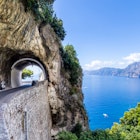
9 money-saving tips for budget travelers in Florence

Apr 21, 2024 โข 7 min read

Florence is an expensive place to visit, but we have some money-saving tips that can help visitors stick to a budget ยฉ Pablo Charlรณn / Getty Images
Sitting comfortably along the banks of the Arno River, Florence has been welcoming tourists since the early days of international tourism, building a global reputation that is hard to match.
British and German aristocrats began traveling to the city to admire Gothic and Renaissance masterpieces as early as the 17th century, and while the era of the Grand Tour is long gone the stream of visitors never stopped.
As far as Italian cities go, Florence sits at the expensive end of the spectrum. The UNESCO-listed city center measures only about 5 sq km (1.9 sq miles), but draws in millions of people each year. The flow of tourism has been driving up prices for decades, with budget accommodation becoming increasingly hard to find. To this, add dozens of world-class museums and day-trip opportunities, and the cost of a visit to the Renaissance city will make your eyes water. Luckily, all is not lost.
The option to splurge is always available, but if youโd rather save some money to extend your stay or continue your Italian itinerary, here are some tips to help you cut costs when in Florence.
A guide to daily costs in Florence
Hostel room: โฌ35โ55
Basic room for two: โฌ80โ120
Self-catering apartment (including Airbnb): โฌ80โ120
Espresso coffee: โฌ1.20
Pizza: โฌ8โ14
Dinner for two in a trattoria: โฌ60
Beer at the bar: โฌ6
Schiacciata sandwich: โฌ7
Museum tickets: โฌ10โ25
Glass of wine: โฌ3โ9
Tram ride: โฌ1.70
Average daily costs: โฌ130โ200
While you're in Florence, don't miss these top experiences

Look for low-season deals
As for many other popular cities, the time of the year you choose to visit Florence can make a huge difference in terms of costs. Tourist crowds start clogging up the narrow streets of inner Florence in spring and typically last until early autumn. Human traffic reaches its peak in the summer, when Italians take their holidays and contribute to the queues.
From May to September accommodation prices can rise dramatically in the historic city. If you are planning to visit during this period, itโs best to book accommodation months in advance to be sure to find the cheapest options available.
If you are flexible and donโt mind the uncertain weather, visiting between November and February (excluding the two weeks from Christmas to the Epiphany), guarantees some good deals. Besides the offers on hotels and apartments, many major museums offer low-season rates which are made even more attractive by the absence of crowds. Access to the Uffizi, for instance, costs โฌ12 instead of โฌ25. Tickets for Palazzo Pitti and the Boboli Gardens cost โฌ10 and โฌ6 respectively, instead of โฌ16 and โฌ10.
Check flights to Pisa
Florenceโs Amerigo Vespucci airport is conveniently connected to the city center thanks to the T2 tram line that links the terminal to the Santa Maria Novella railway station. Yet, it may be cheaper to fly into Tuscanyโs other airport, Pisa. Located a little over an hourโs drive from Florence, Pisaโs Galileo Galilei airport offers many more options for low-cost flights. Ryanair, Wizz Air, Vueling and easyJet all fly in and out of Pisa daily.
When booking your flights consider that youโll need to add about โฌ30 to get from Pisa to Florence and back. From Pisaโs airport, you can reach the Pisa Centrale railway station in about five minutes with the Pisamover service (โฌ6.50) and then get to Florenceโs city center with a regional train in one hour (โฌ9.30).
Look out for fixed-price lunch menusโฆ
Florence's city center has no shortage of restaurants, but only some trattorie offer an all-included, fixed-price menu. Such menus typically include a first and second course, plus a contorno (side dish) for prices ranging from โฌ14 to โฌ20.
When walking through the side streets of the city center, look out for signs promoting lunch deals. While increasingly rare, they are still available at old-school and often unassuming restaurants such as , , and .

โฆ or try some great street food
If youโd rather eat something on the go, stop by any bakery to try one of Florenceโs traditional sandwiches for around โฌ7. Schiacciata bread is similar to focaccia, having a crispy outer crust and a soft interior typically stuffed with anything from cured meats to grilled vegetables and cheeses. AllโAntico Vinaio has turned this simple meal into viral social media content, as the permanent queue extending from its doors in Via dei Neri testifies, but sandwich shops are scattered all around the city. Try Pugi, , (open until late) or .
Stuffed schiacciata is not the only sandwich Florence is known for. Audacious travelers may want give lampredotto a try โ this famous Florentine street food is made with the fourth and final stomach of a cow, called the abomasum, which is slow-cooked in a broth and covered in salsa verde (green sauce made with parsley and anchovies) before being served between soft white bread. Try it at or 'l Trippaio di San Frediano.
Use regional trains for your day trips
If you are planning to spend more than a few days in Florence, itโs worth venturing out of the city to explore the fascinating towns that dot Tuscany. To do so, take the train. Inexpensive regional Trenitalia trains connect Florence with Lucca, Pisa, Siena, Arezzo, Pistoia, Prato and many other destinations, often for under โฌ10 each way.
There is no need to book in advance โ contrarily to high-speed trains, tickets for regional trains can be purchased on the spot without a price increase, allowing for spontaneous day trips both within and beyond the borders of Tuscany.
Ready to explore beyond Florence? Here's our guide to some great day trips

Check out the official guided tours of Florenceโs museums
Hiring a private guide to tour the city will typically cost you between โฌ60 and โฌ120 per hour. Many cultural institutions, however, provide their own official guides for a small fee added to the ticket price. Itโs well worth booking your spot in one of these official guided tours โ besides offering the explanation of a specialist, they often allow you to enter areas that are not accessible independently.
For instance, the 18th-century anatomical waxes of the recently refurbished La Specola Natural History Museum can only be visited with a guide, which costs โฌ3 per person on top of the ticket. A guided tour of Palazzo Medici Riccardi, the Mediciโs first Florentine residence housing the spectacular Cappella dei Magi frescoed by Benozzo Gozzoli, costs โฌ4.
Check out the many group activities organized by , the association handling the tours of Florenceโs civic museums. With โฌ5 you can book a visit to , which will take you to Francesco Iโs Studiolo โ a Renaissance wonder room โ through the hidden staircases of Florenceโs city hall.
Drink your espresso al banco
If you decide to have your coffee at the table, you may be charged a service fee. The rule doesnโt apply to all cafes, but to play it safe, do as Italians do and have your espresso al banco (at the counter). In Italy, coffee breaks are quick and frequent. People drink their shots of caffeine standing up, taking only a few moments before continuing on their day.
Get your wine at local enoteche
Wine has been a Tuscan staple since the Middle Ages and continues to be so today. When buying wine, visit enoteche (wine shops) selling locally produced varieties such as Chianti or Sangiovese obtained from the hills surrounding the city. In shops such as Alla Sosta dei Papi or , you can bring your own bottle and have it filled with young wine for just a few euros. Fratelli Zanobini and , both in the San Lorenzo neighborhood, are good places to stop for a glass or two between sights.
Drinking on the street is allowed in Italy and itโs common for Florentines to gather in public squares during warm summer evenings and enjoy a bottle of wine in the open. When ordering wine in restaurants the cheapest option will always be vino della casa (house wine), often sold by the carafe rather than the bottle.
Buy a Firenze Card for discounted access to museums
Art enthusiasts have so many museums to choose from that a single trip to Florence will inevitably feel too short, no matter the length of the stay. If you do decide to squeeze in as many cultural sights as you can, itโs worth checking out the . Costing โฌ85 and valid for 72 hours (with an extension option available), this card includes access to over 70 museums, galleries, churches and monuments.
Explore related stories


 Destination PracticalitiesGetting around Italy: from car rentals to trams and buying train tickets at the cheapest prices
Destination PracticalitiesGetting around Italy: from car rentals to trams and buying train tickets at the cheapest pricesDec 16, 2024 โข 14 min read
 Destination PracticalitiesHow to spend the ultimate long weekend in Verona, Italy
Destination PracticalitiesHow to spend the ultimate long weekend in Verona, ItalyDec 10, 2024 โข 8 min read
 Road Trips6 beautiful road trips in Italy, from the Amalfi Coast to the Tuscan countryside
Road Trips6 beautiful road trips in Italy, from the Amalfi Coast to the Tuscan countrysideDec 5, 2024 โข 7 min read
 Destination PracticalitiesThe best time to go to Italy: plan your trip with our seasonal guide
Destination PracticalitiesThe best time to go to Italy: plan your trip with our seasonal guideDec 3, 2024 โข 7 min read
 Tips & AdviceThe 15 best places to visit in Italy, from Venice to the Cinque Terre
Tips & AdviceThe 15 best places to visit in Italy, from Venice to the Cinque TerreDec 3, 2024 โข 11 min read


 Road TripsThe 11 best day trips from Rome from medieval villages to ancient wonders
Road TripsThe 11 best day trips from Rome from medieval villages to ancient wondersOct 17, 2024 โข 10 min read
